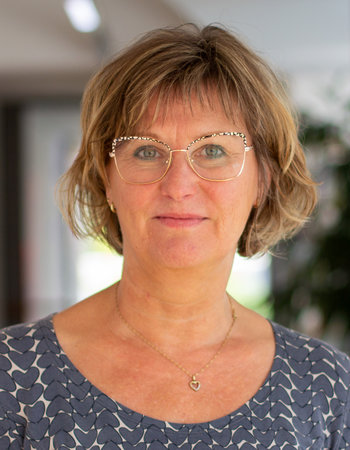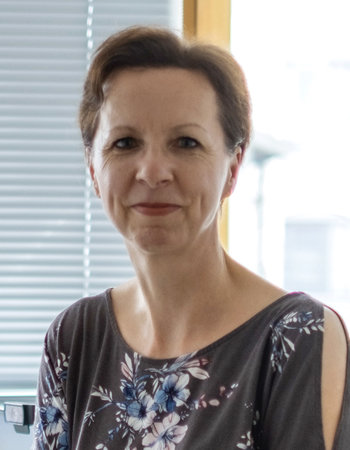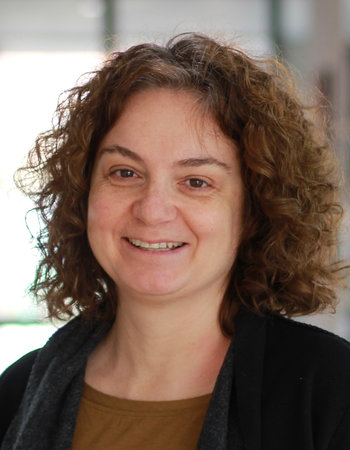
We want the new staff members at our institute settle in quickly and feel a sense of belonging. That is why we support you in all important questions concerning
- preparations for your journey to Germany
- your arrival in Dortmund
- settling in in Germany
- your entire stay at the institute
The Welcome Office offers our foreign guests, future staff members, and scientists from around the world a wide range of assistance and information to make your start with us go as smoothly as possible.
We help you with all formalities and organizational matters prior to arrival, after arriving in Dortmund and during your stay at the institute.
Contact

Christa Hornemann
IMPRS Administrative Coordinator
Antje Peukert
Welcome Officer
Before arrival
What you should consider and take care of before your stay at our institute
1. Passport and Visa
2. Health Insurance
3. Accommodation
1. Passport and Visa
EU-Citizen
If you are a citizen of a member state of the European Union (EU), you only need a passport or identity card stating your citizenship to enter Germany.
Non-EU Nationals
If you are a national of a country outside the European Union, you need to obtain a visa before coming to Germany. Which kind of visa depends on the duration of your stay.
Schengen Visa for short-term stays
The Schengen visa is valid up to 90 days within a 6-months period and is not extendable.
If you intend to travel within the Schengen Zone, you should apply for a multiple entry visa best at the embassy of the country where you will stay most of the time.
For further information on application requirements and fees for the Schengen visa, please visit this website: Schengen Visa Application Requirements
National Visa for long-term stays
If you plan to stay longer than 3 months, you need to obtain a national visa before coming to Germany. This can be applied for at the German embassy or consulate in your home country or in your present country of residence. The national visa is issued for 3 months and entitles you to apply for a a residence permit.
Exceptions apply, among others, to citizens of the EEA (European Economic Area), Swiss nationals and citizens of Australia, Canada, Israel, Japan, New Zealand, South Korea and the United States who do not need a visa to enter Germany and can therefore apply for the necessary residence permit after arrival. However, working in Germany requires a residence permit and its application can take 4 - 6 weeks. So if you want to start working directly after arriving, apply for a residence permit already in your home country at the German Embassy.
Please check this table for a complete overview of countries whose citizens need or do not require a visa to enter Germany: Einreise und Aufenthalt
Further information and links can also be found in the brochure "Living and working in Germany“.
2. Health insurance
Please arrange a health insurance before coming to Germany that covers your journey and the first couple of weeks here. Our staff office will be happy to advise you on further procedures.
Further information and links can also be found in the brochure "Living and working in Germany“.
3. Accommodation and housing
The living areas closest to the institute are Eichlinhofen, Barop and Hombruch. If you prefer a more lively environment, you should look for a flat in the Citicenter (especially Kreuzviertel, Klinikviertel, Saarlandstraßenviertel and Kaiserstraßenviertel).
The most common websites to look for accommodation are
For furnished flats or rooms have a look here
Dortmundzentral
Tilgert Personalwohnungen
Monteurwohnungen Dortmund
Citywo
Homecompany
Interlodge
And for private short or long-term lodgings have a look here
www.wg-gesucht.de
www.zwischenmiete.de
Family and children
Reconciling work and family life is important to us. We offer extensive support to help you strike a balance between the two.
To meet your requirements we make every effort to put together individual packages of measures in accordance with your personal circumstances. Please feel free to contact us!
Children
Dortmund is a family-friendly city and offers a variety of child-care possibilities (day nursery, kindergarden, nannies). The service is not free of charge and fees depend on the type of organization (state-run, church, private) as well as the parents’ income.
Important
Childcare places are in high demand so contact us as soon as possible.
Dual Carrers
Important information: If your spouse wants to stay in Germany for more than 90 days, a national visa will be required which entitles your partner to apply for a residence permit in Germany. If your spouse wants to search for a job in Germany, the visa has to include an employment permission.
The Max Planck Family Service
The Max Planck Society engaged the pme Familienservice Gruppe to advise you on all kinds of family related issues like child care (also short-term), care for the elderly, or crisis management. The costs for the advising service is carried by the Max Planck Society. Costs for caring services have to be covered by you.
The Family Service helps you select the solution best suited to your family needs from the wide, sometimes confusing range on offer. The types of care include for example
- Arrangement of a (permanent) childcare place (day-care persons and childcare establishments)
- Arrangement of a babysitter (childcare person at home)/au pairs/granny to go
- Emergency care at private home/back-up facilities via an emergency hotline
- Online website enabling employees to search themselves for institutional childcare solutions (crèche/nursery) (age 0 to 6)
- Holiday care services
- Meeting care
- Consultation on and arrangement of care for the elderly (consultation on care solutions and the financing of care, arrangement of carers and places at care homes)
- Support with the development of suitable care concepts
- Provision of events for health management (Stress and Burn Out Prophylaxis)
Dual careers
The number of partnerships in which both partners are highly qualified and wish to pursue their own careers is rising steadily. And anyone seeking long-term success and job satisfaction needs a stable social background.
We care about your work-life balance and equal opportunities. Therefore, we offer support to the partners of our newly appointed scientists in their efforts to pursue their own careers in Dortmund and its surrounding area.
We are part of the Wissenschaftsnetzwerk Dortmund (WinDo) that maintains a big dual carreer network. WinDo is a network of of university and non-university facilities in Dortmund that in total employ approximately 10.500 workers.
Further information on windo and how to register in the dual career network can be found here. WinDo Dual Career
Equal Opportunities >
First steps in Dortmund
Registration
In the first two weeks after arrival you need to register at the responsible authority in Dormtund, which is either the Bürgerbüro or the Ausländerbehörde. Here you can also apply for your residence permit.
Check this list of currently required documents.
First steps at the Institute
We
- show you the building, structures and ways within the building, administration, canteen, central facilities, first aid, etc.
- take care of registration formalities for you (access card, keys, etc.)
- introduce you to your new research group and help you get in touch with staff members who can assist you outside of working hours – for example for an arrival before a weekend
- introduce you to other colleagues from your home country who work at our institute
For IMPRS Students
IMPRS students have their dedicated contact persons, who take care of their particular issues: Christa Hornemann and Lucia Sironi, the coordinators of the IMPRS PhD program.
Lucia and Christa support you with
- everything connected with the arrival
- the Integration at the institute and accompany your scientific work during your entire research stay
Prior to Arrival
The service includes
- an individual invitation with information about which documents to bring (certificates of university degrees, etc.)
- information about how to apply for a visa
- information on how to get here (directions, information on buying tickets for flights / trains)
- procurement of accommodation for the first days
- help with the room / apartment search (search for adequate possibilities, contact with landlords, accompaniment during viewings, advice on leases, dos and don'ts regarding the house rules, registration for electricity, TV/radio fees, etc.)
- assistance with authorities, registration with the foreigners’ registration office Dortmund / the local residents' registration office
- advice on shopping (food, also on country-specific products)
- assistance in opening a bank account
- help with questions concerning health insurance (explanation of services, etc.)
- information on public transport tickets
Integration at the Institute – First Steps
We
- show you the building, structures and ways within the building, administration, canteen, central facilities, first aid, etc.
- take care of registration formalities for you (access card, keys, etc.)
- introduce you to your new research group and help you get in touch with staff members who can assist you outside of working hours – for example for an arrival before a weekend
- introduce you to other colleagues from your home country who work at our institute
Support for Your Research Work
We
- help you enroll in the doctoral program, prepare all letters, contact the Foreign Office of the respective university
- assist you in the procedure for recognition of your studies / qualification / degrees from your home country
- support you in all formalities with the Dean’s Office
- ensure that you learn about regulations and important deadlines
- help you register for the defense of the doctoral thesis
- provide coaching sessions, help with integration problems and private worries

Dr. Lucia Sironi
IMPRS Scientific Coordinator